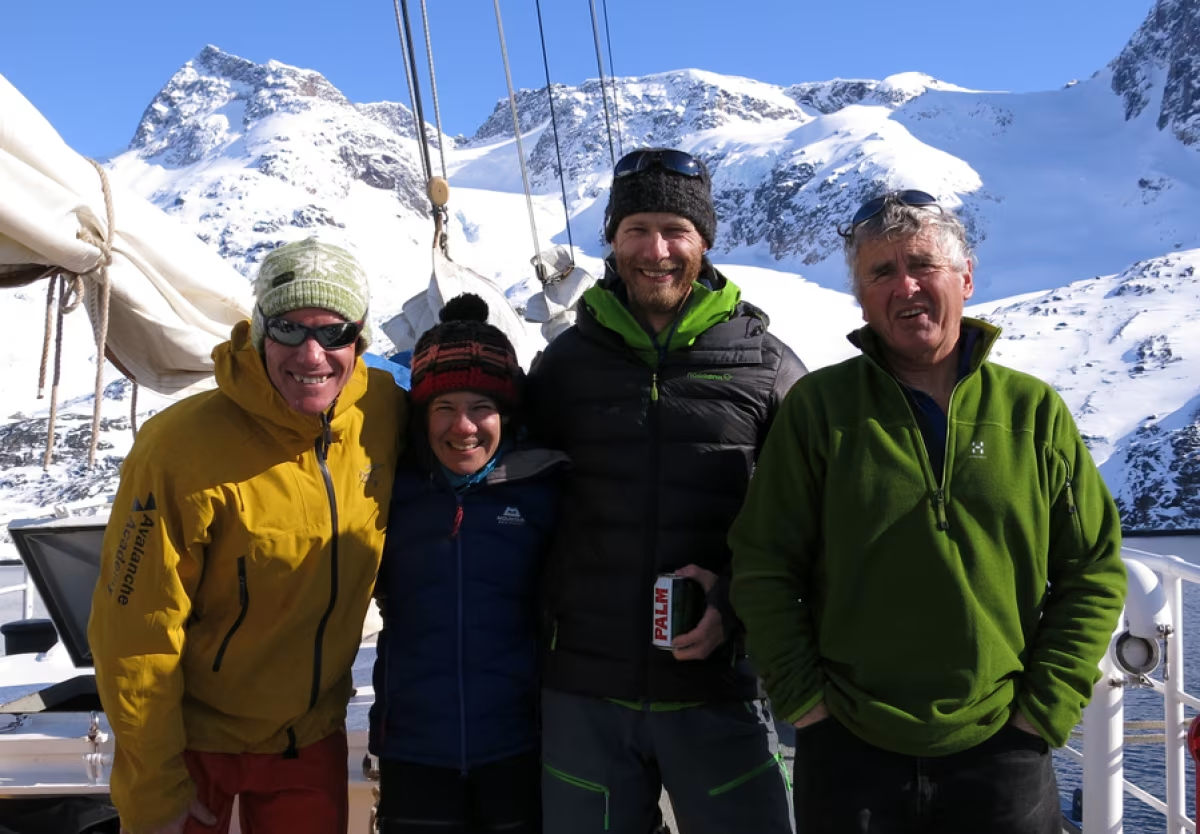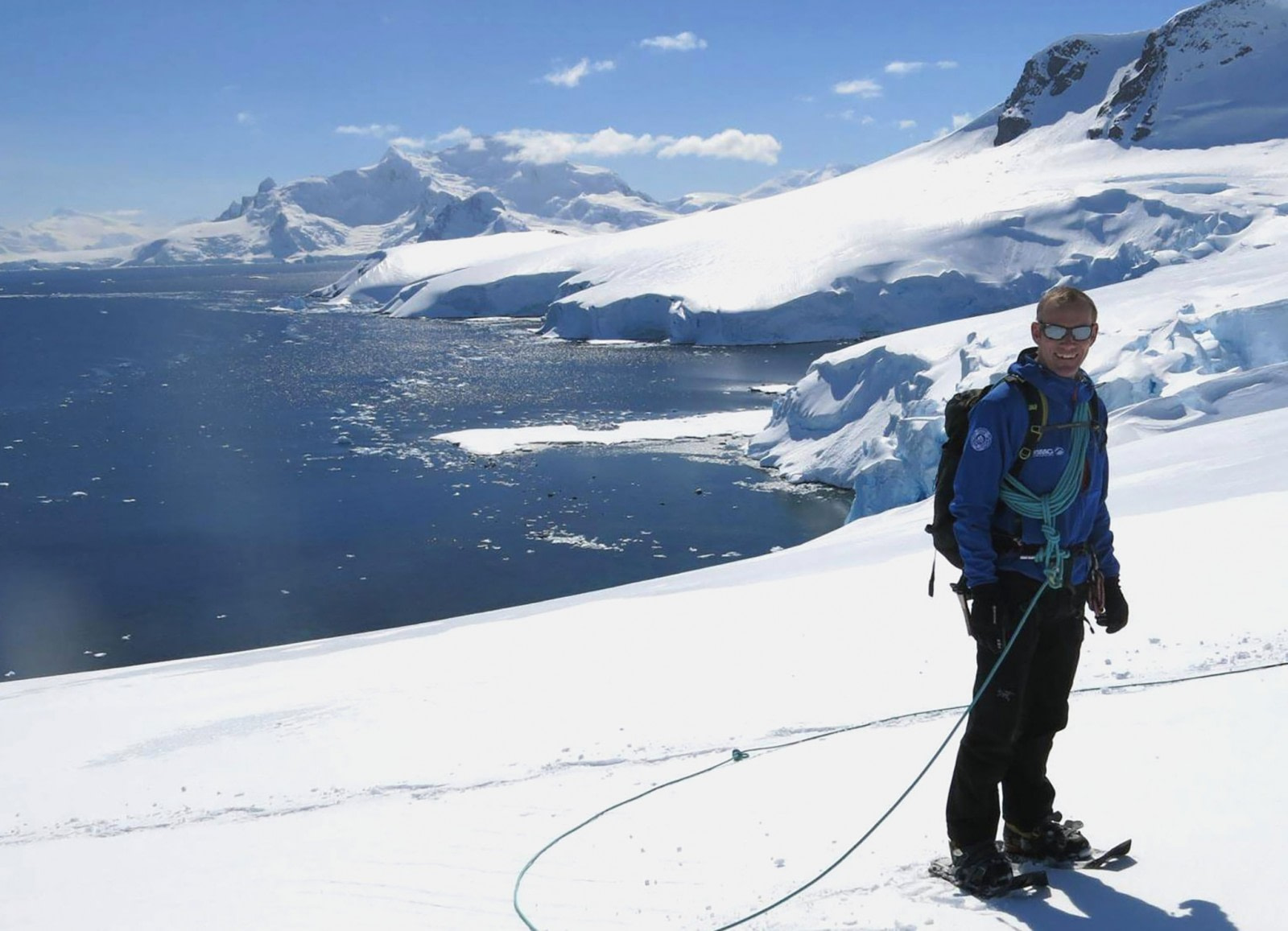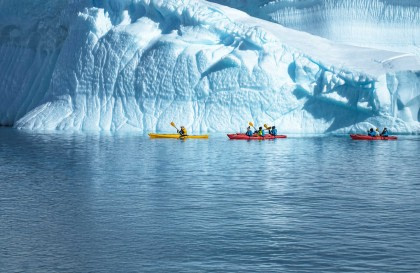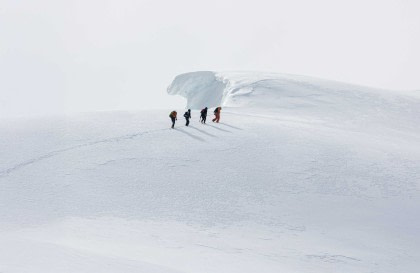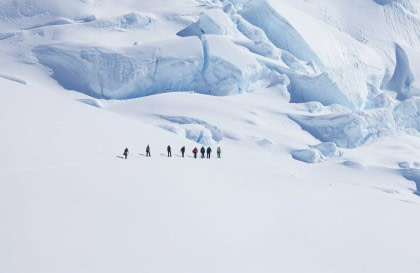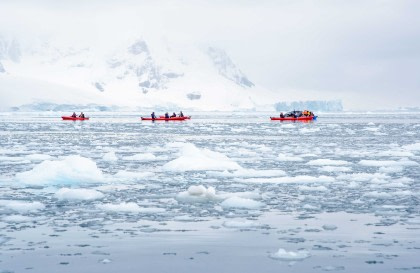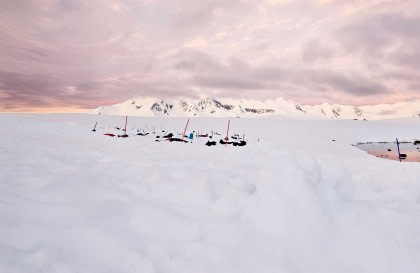The life of a polar expedition guide
There are good jobs, and there are great jobs. And then there are jobs where you climb up mountains and ski back down them and get paid to do it. These are different jobs entirely.
Tim Blakemore, an Oceanwide mountaineering and skiing guide, has one of these jobs.
Of course, there’s more to being an expedition guide than getting there and getting back and making everyone jealous. For one, you’re responsible for a lot of people. You’re also in a potentially dangerous setting. And then there’s all that training and equipment.
To find out more about the sport, the gear, and everything in between, we put a few questions to Blakemore – and did our best not to look envious. (It wasn’t easy.)
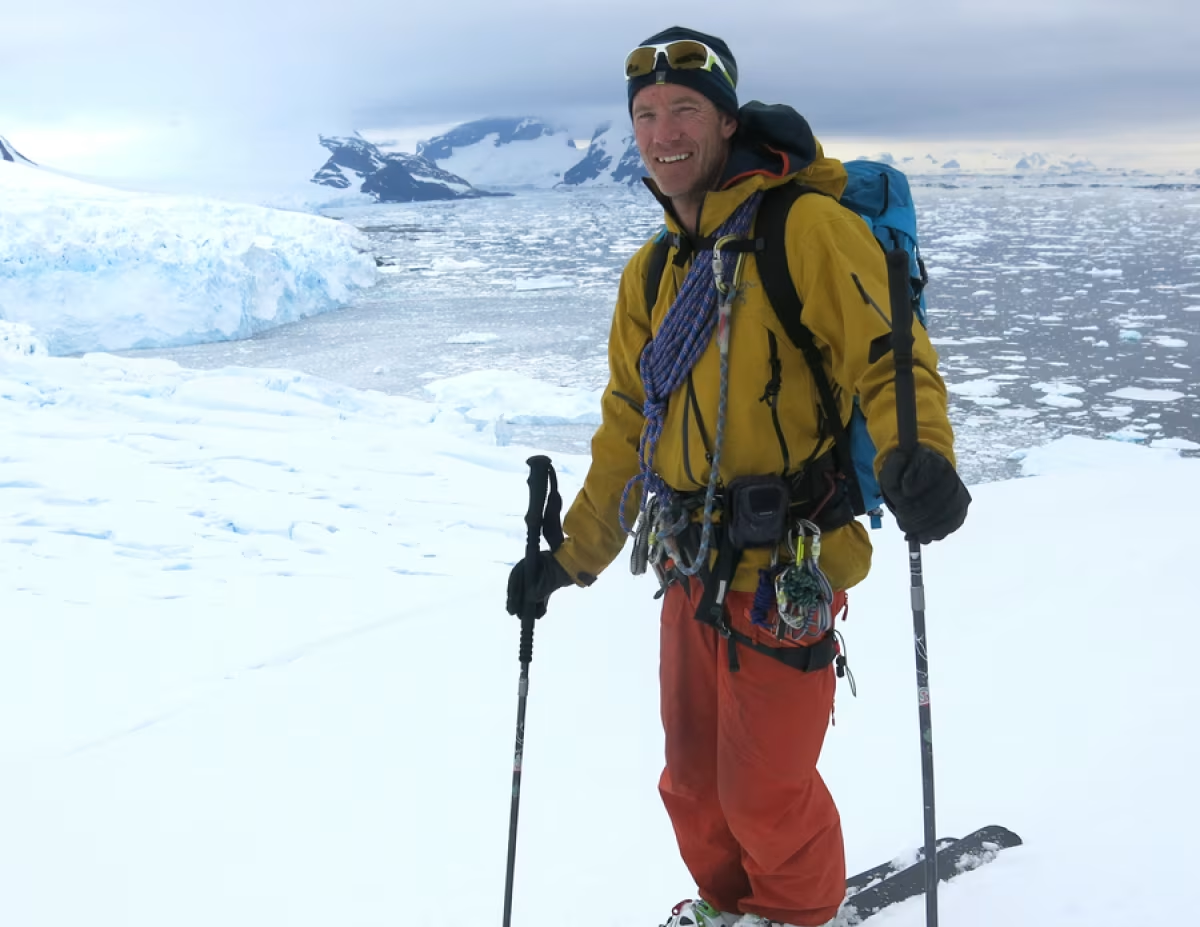
So how does one become a mountaineering guide as opposed to, say, a writer for a polar cruise company?
I never set out to be an international mountain guide. I just had an insatiable drive to be outside and always wanted to look around the next corner. In my early twenties, I worked at an outdoor center for young people and gained my initial experience that way.
My personal climbing and skiing started to take me farther around the world, and I accrued the experience necessary to become an IFMGA guide.
I also spent six months working at Rothera Research Station on the Antarctic Peninsula for the British Antarctic Survey. I was given huge freedom there and ran a small science project, traveling by snowmobile and sleeping in pyramid tents.
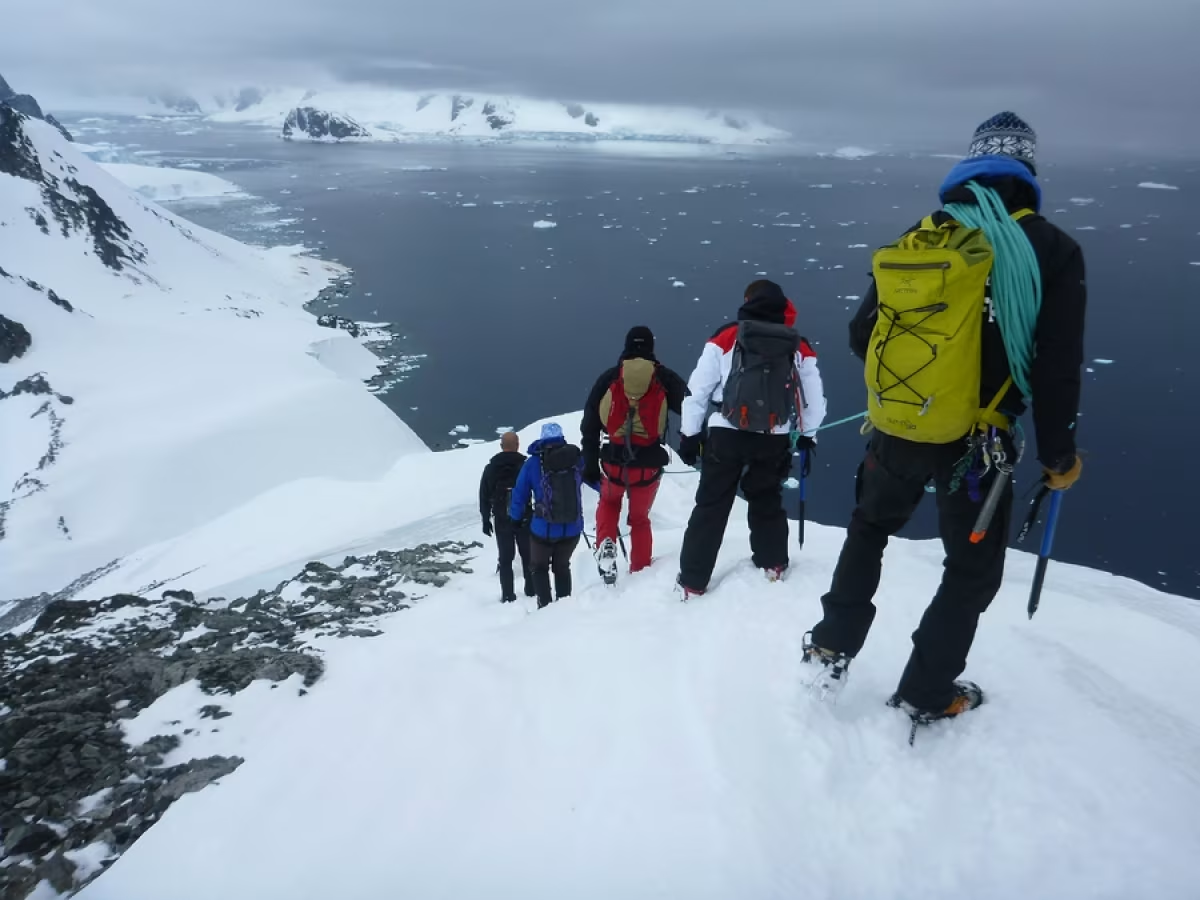
Photo by Owen Samuel
A baptism by ice, as it were. After that you joined Oceanwide?
Ten years after that, a colleague who I’d worked with at Rothera contacted me to ask if I would be interested in joining the mountaineering team at Oceanwide. I’ve been coming “down south” on the vessels Plancius and Ortelius ever since.
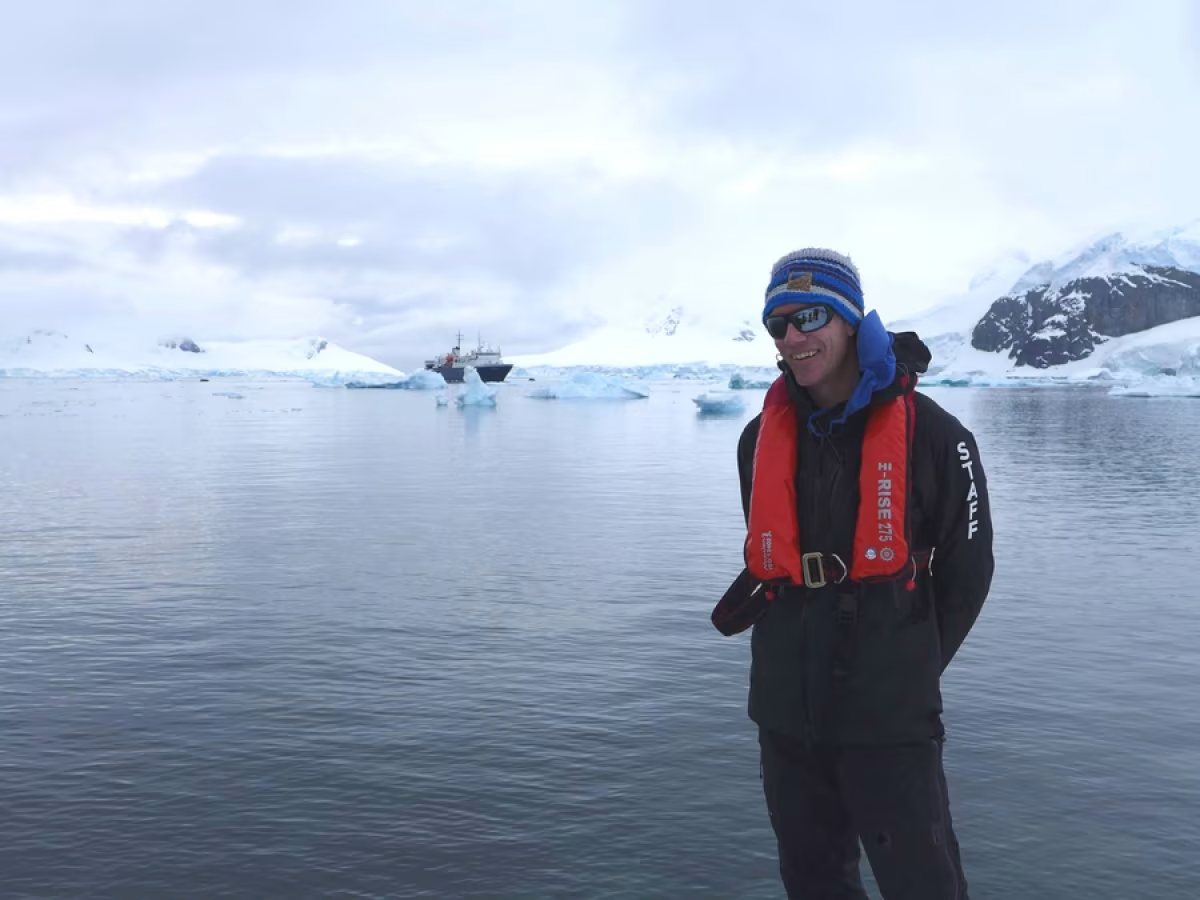
In all that time, you must’ve formed quite a list of favorite ascents and descents.
One peak I’ve always enjoyed climbing is Jabet Peak in Antarctica. The setting is wonderful, with glaciers dropping into the sea and penguins on the shore. You leave them behind and slowly make your way through glaciated terrain to a ridge that steepens and becomes almost a knife’s edge.
I’ve also skied this peak. Facing due south, it often has great powder, which is rare in Antarctica. You can ski all the way to the shore, a very special experience.
You’re making it very hard for us to feel sorry for you, Tim.
What can I say? It’s a privileged existence I have.
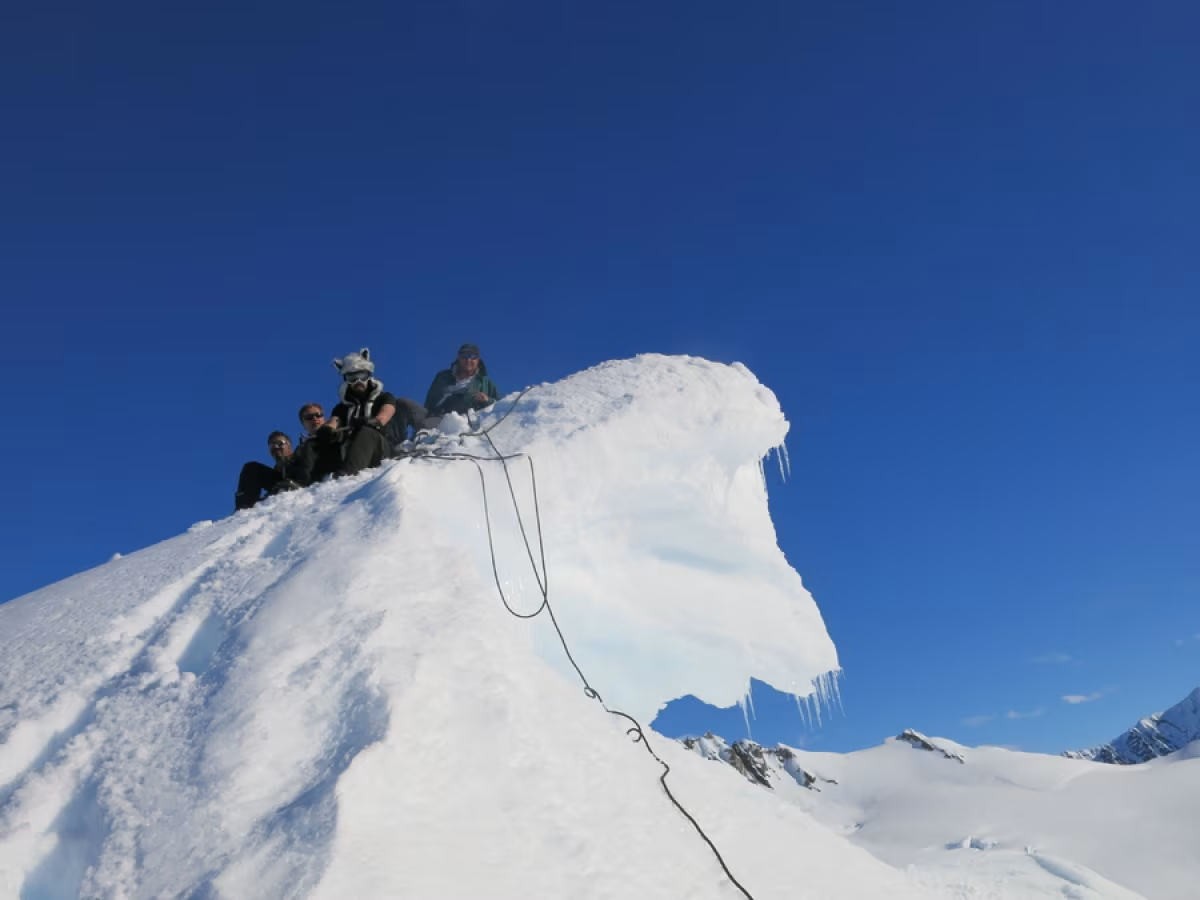
But one that certainly needs a lot of skill and athleticism.
For mountaineering, you just need a good level of cardiovascular fitness. Any running, cycling, or swimming previous to your trip is going to help. Hill walking with a rucksack is ideal to building up stamina, also.
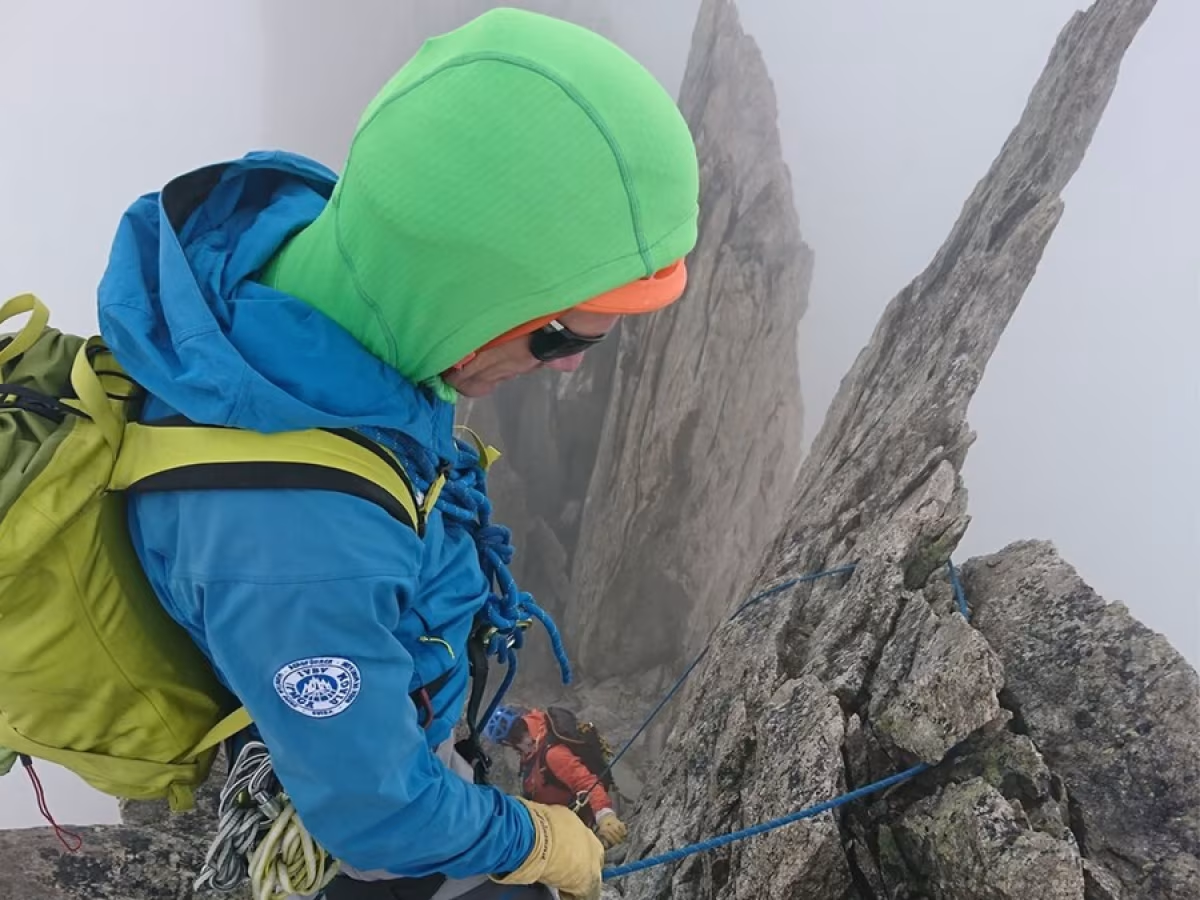
Does writing about all those things count?
Are you doing some pretty rigorous walking at the same time?
Not typically, no.
Then no. Not typically.
Duly noted. Does skiing require the same level of athleticism?
Skiing is more technical, and the polar regions are not the places to learn how to do it. Solid technique is needed before skiing in the polar regions, away from prepared runs, or “off piste” as we say. The rewards are fantastic, though.
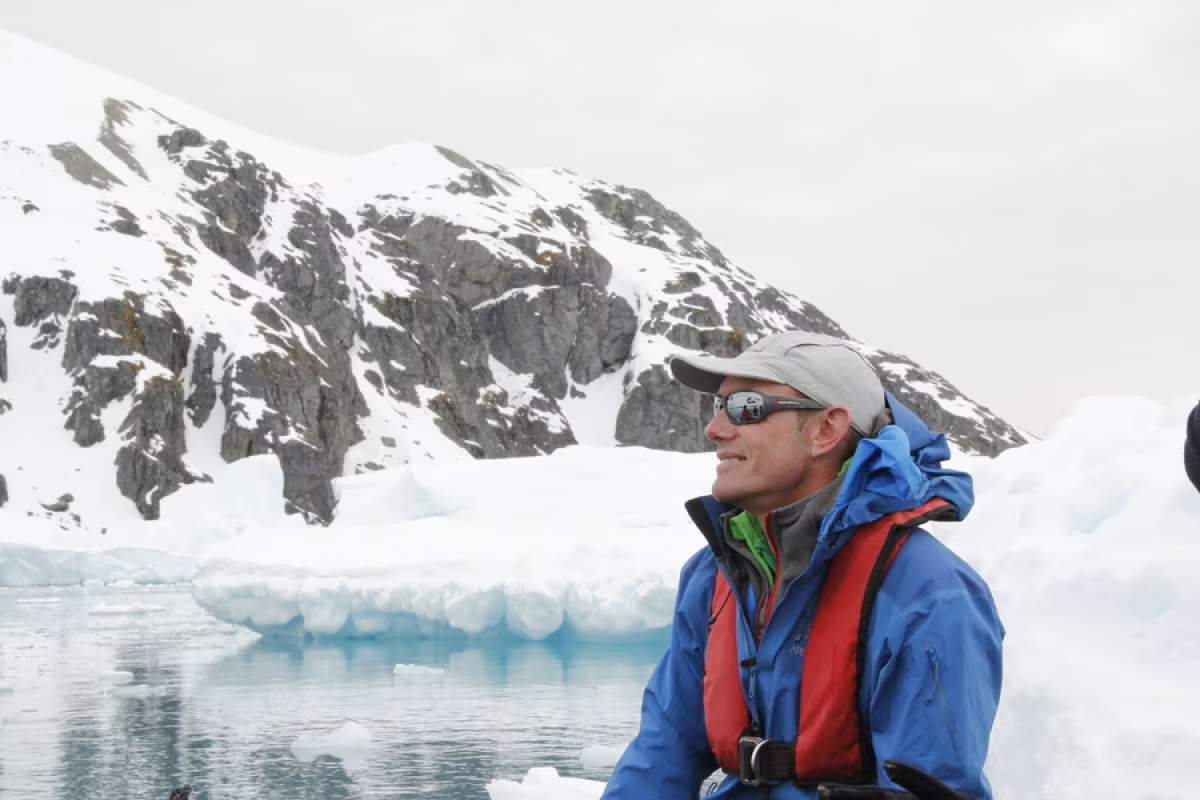
What sort of equipment do you prefer when off piste-ing?
Good waterproof gear is important, particularly for the Zodiac crossings. I also carry ski goggles, since sometimes the conditions are not unlike driving in a blizzard.
I always carry good sunglasses and wear loads of sunscreen, as the solar radiation can be fierce. Because of the remoteness, I often carry wands to mark my route. Getting lost in poor visibility on glacial terrain is pretty frightening.
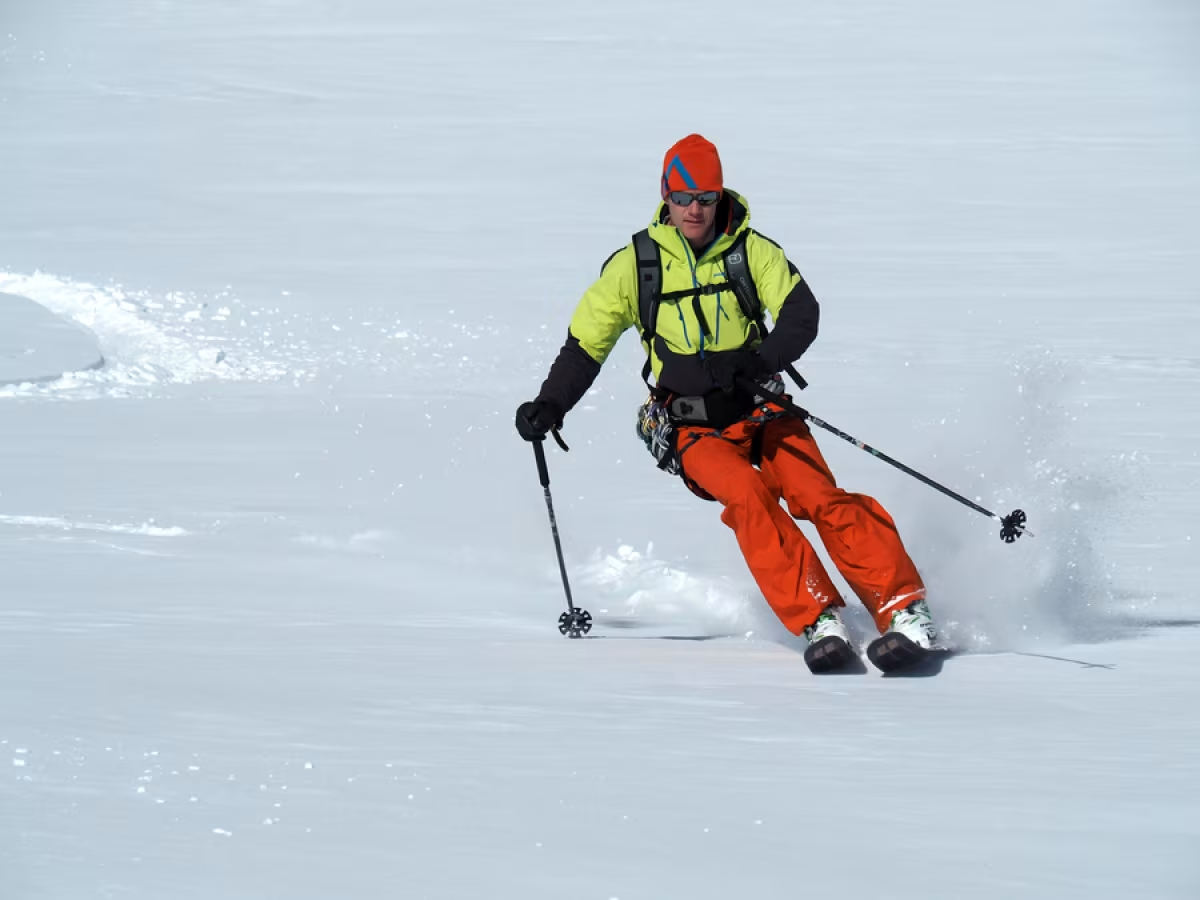
Photo by Andy Perkins
Is there one experience you’ve had that really stands out?
I remember leaving the ship around 5 AM once, heading out in a Zodiac to collect some passengers who’d been camping overnight in Antarctica.
I hadn’t started my engine yet and was slowly drifting away from the ship. The water was like glass. There was total silence. Suddenly a minke whale breached right next to me, and I could smell his breath as he spouted. That was my very own personal Antarctic experience.
That’s a good one. Do experiences like that make the polar regions more special for you to work in than other places?
The main difference in the polar regions is the wildness and the lack of infrastructure. You need to be more self-sufficient and adjust your objectives with that in mind.
But in both the Arctic and Antarctica, skiing from summits to glaciers is a unique experience.
Need we ask if there’s a downside to your job?
I work in the European alps also, so the long seasons can be physically and mentally demanding. It’s important that I take time off and rest properly.
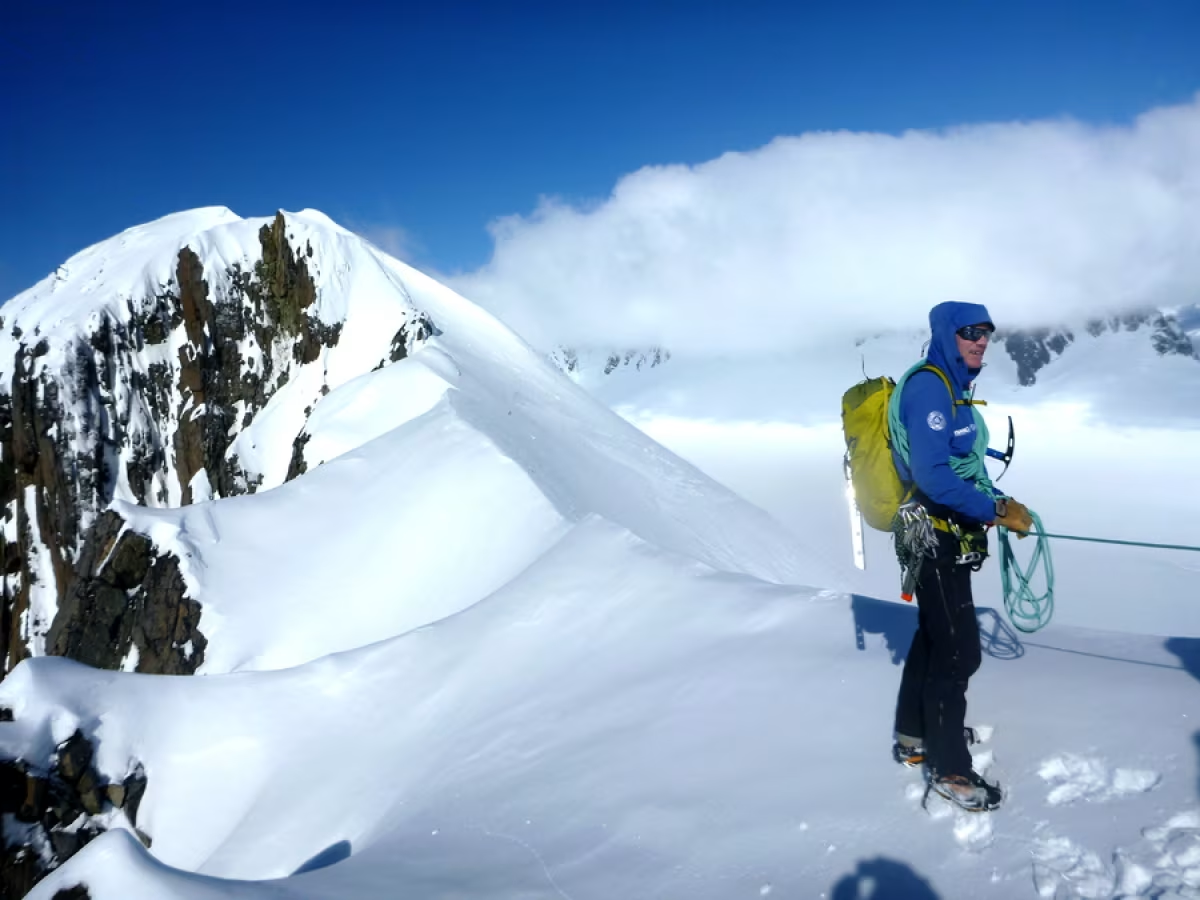
And the upside? (For those who haven’t been paying attention.)
It’s my clients that are the best part of my job. I genuinely enjoy spending time with them.
Even the green-with-envy ones?
Even them.
